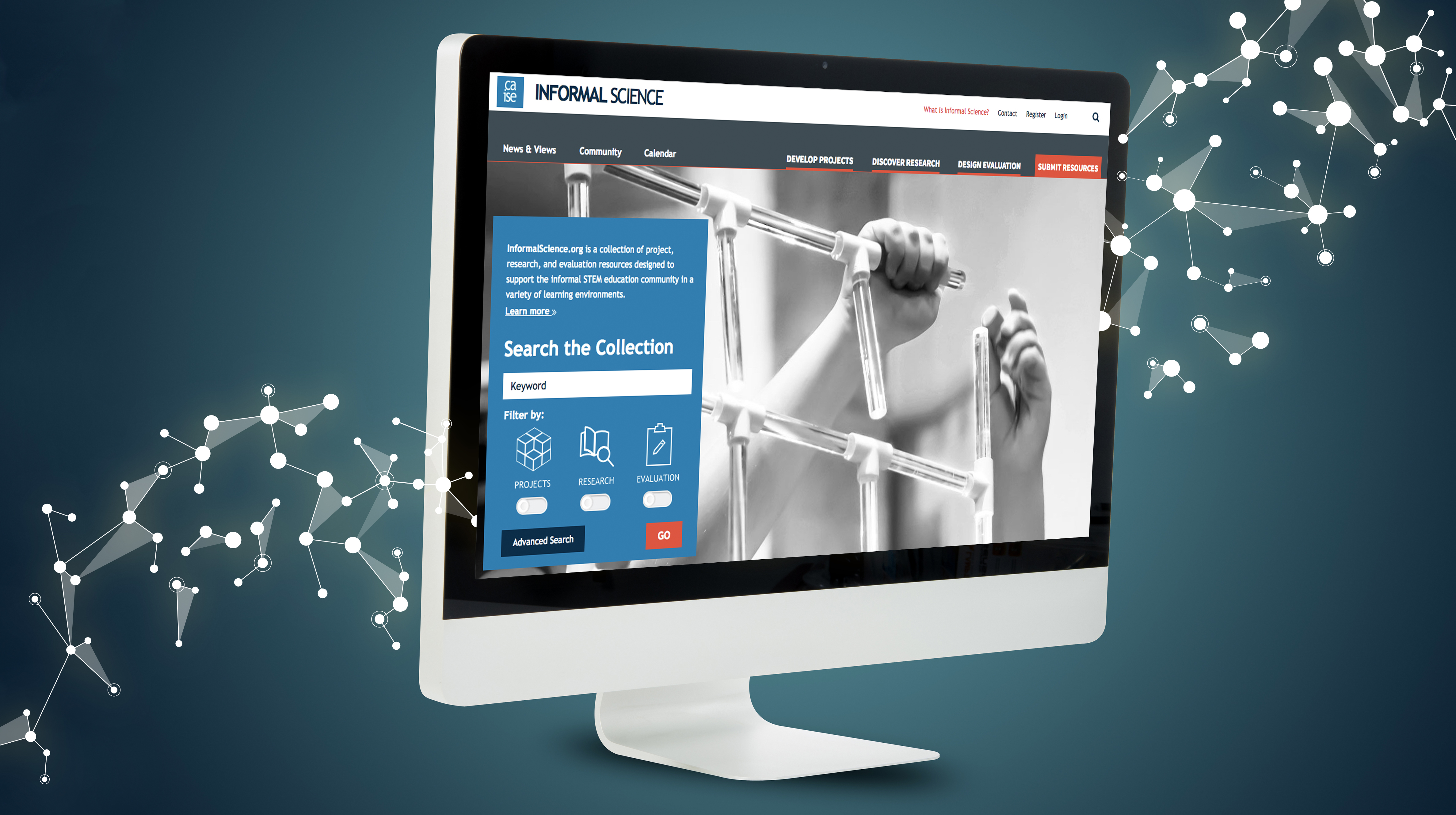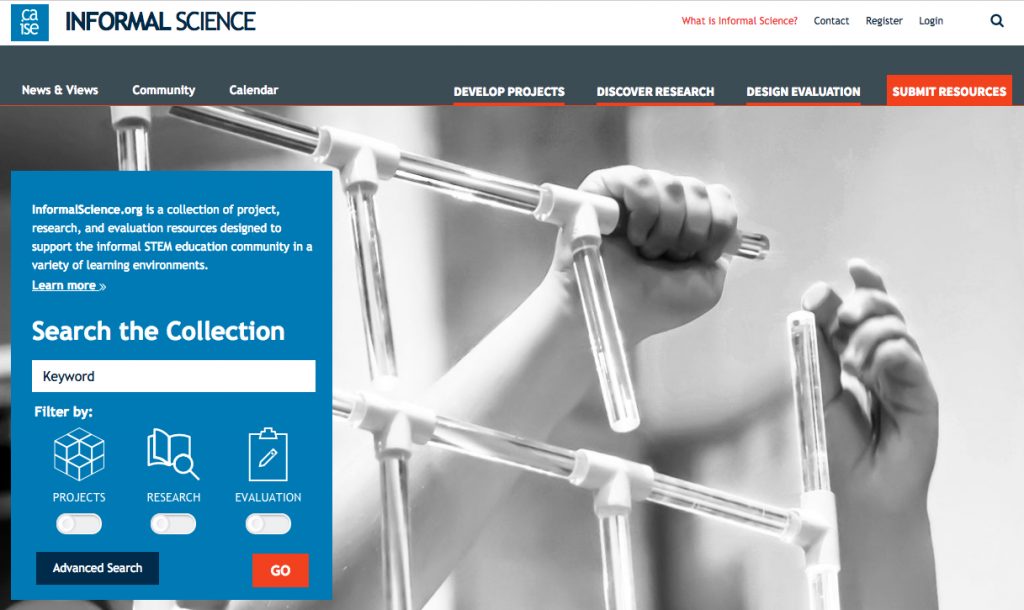Brief
CAISE
A Center of Resources Regarding Out-of-School STEM Learning
Connected Science Learning January-March 2018 (Volume 1, Issue 5)
By Jamie Bell and Ashley Gary

The Center for Advancement of Informal Science Education hosts resources for designers, evaluators, and researchers of informal STEM learning experiences and settings.
The Center for Advancement of Informal Science Education (CAISE) is a National Science Foundation (NSF)–funded resource center that collects, curates, and connects materials and scholarship for designers, evaluators, and researchers of informal STEM learning experiences and settings. CAISE also serves the NSF’s Advancing Informal STEM Learning (AISL) program and its principal investigators by curating project pages for each award. These pages include abstracts, team members, and project products such as evaluation reports, related research articles, videos, and websites.
CAISE’s InformalScience.org website contains a robust, growing repository of 8,000+ project abstracts and evaluation and research papers related to informal STEM education (ISE). The website also features a calendar and posts news items about conferences, professional development, and other opportunities for professionals working in ISE and science communication.
CAISE also provides InformalScience.org members (membership is free) with access to the EBSCO Education Research Complete database, a monthly newsletter, and the opportunity to engage in forum discussions about current and important topics in the field.
The CAISE website has three major drop-down menus of interest to educators wishing to work with the informal STEM learning community.
Develop Projects
- Developing a Project: Quick tips to help you think about the development of a new project.
- Funding: An overview of public and private funding sources, as well as steps to take to prepare a proposal.
- Reporting and Dissemination: A brief review of the types of reporting required by funders, what counts as dissemination, and examples of websites where principal investigators have shared their work.
- Learn From Experience: Examples of setting-specific informal STEM learning, as well as ISE projects, approaches, findings, and theory.
Discover Research
- What Does Informal STEM Education Research Tell Us? Key ISE literature, reports, AISL research, and examples of ways to use such information.
- What Does Informal STEM Education Research Look Like? The six types of research identified by NSF and the Department of Education’s Institute of Educational Sciences, and links to CAISE Spotlights of AISL projects.
- What Are the Important Gaps in Informal STEM Education Research? Pressing ISE gaps and current research agendas.
- How Can I Integrate More Research Into My Practice? Introduction to the resources available through InformalScience.org about research, plus tips on how to reach out to researchers for collaboration.
- Access Peer-Reviewed Literature (EBSCO): Peer-reviewed articles from thousands of learning research journals via EBSCO’s Education Research Complete database are available to members of InformalScience.org for free.
Design Evaluation
- Working With an Evaluator: Resources for what qualities to look for in an evaluator, as well as advice for finding an evaluator to partner with.
- Developing an Evaluation Plan: Information and tools to help plan evaluations, such as guides and checklists, along with resources on using an institutional review board and implementing culturally responsive evaluation.
- Evaluation Tools and Instruments: Tips to determine whether a ready-made evaluation tool can fit your project’s needs, as well as a vetted list of tools and instruments used for informal science education.
- Evaluation Reporting and Dissemination: Tips and resources for writing and disseminating evaluation results, along with additional resources to help with data visualization.
- Learn More About Evaluation: Links to professional evaluation associations, journals, major research, and convenings.
Submit Resources
- Submit your latest research, gray literature, tools, and evaluations to help grow the fields of ISE and science communication.
Conclusion
If you would like to get the latest research, news, funding deadlines, and events happening in the fields of ISE and science communication, sign up for the monthly CAISE newsletter at InformalScience.org.
For questions, comments, and suggested contributions to resources and knowledge, contact caise@informalscience.org.
Jamie Bell (jbell@informalscience.org) is project director and principal investigator at the Center for Advancement of Informal Science Education in Washington, DC. Ashley Gary (agary@informalscience.org) is an administrative coordinator at the Center for Advancement of Informal Science Education in Washington, DC.



